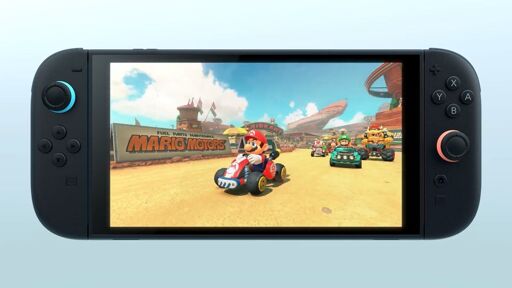The Switch 2 reveal on Thursday didn’t tell us much, but the one thing Nintendo was quite particular about showing was the suite of I/O options on the console. I’m pleased to see we’re getting an extra USB-C port, but nothing could compare with the joy of seeing a real, proper headphone jack highlighted so prominently in a 2025 hardware reveal.
Headphone jacks still prominently feature in many of the best gaming handhelds, including modern devices like the Steam Deck OLED, as well as standard PS5 and Xbox Series controllers. But ever since 2016, when Apple declared its own “courage to move on” from analog audio output in favor of Bluetooth, I’ve been increasingly nervous that other tech companies would start to crawl in the same direction.



nintendo is incredibly pragmatic… is it because of battery life?
I think that is one of the reasons, but the main one is probably interference from controllers.
When they added Bluetooth audio to the original switch, they had a limit on the number of controllers you could have connected at the same time (I think it was like two?). So it’s probably the same for switch 2, they just don’t want to deal with it
latency can be a problem, too
doesn’t matter much for calls and music, but timing of gameplay can be harmed with audio lag
This was immediately obvious to me once I tried playing a rhythm game with bluetooth headphones. Never again.
Definitely matters for calls, most wireless headphones lower quality for decreased latency when the microphone is on.
At least that’s my understanding
No, that’s because the Bluetooth spec (or codecs, or something) only allow for lower-bandwidth audio in order to support bidirectional streams.
Like if you’ve got a limited bandwidth, you can run any two of high quality audio, stereo audio, and microphone input. There’s not enough for all three.
That’s simplified and probably not 100% accurate, but you get the idea. (Latency probably figures in there too, but it’s not the primary reason, as far as I know.)
Makes sense, thank you
High latency (multiple seconds) can be a problem for carrying on conversations (calls), but even very small latency (fractions of a second) can be the difference between catching a fish and missing it in ACNH (for example).
True, but I’m not sure how common the use case of having a bunch of controllers connected and Bluetooth audio is. Or even more than one player and wired headphones. I’d imagine almost everyone doing multiplayer is doing it on a TV over HDMI.
Even if it’s one player with multiple controllers somehow (two detached joycons, for example), it’s unlikely a game would need very many.
I’m guessing at least partly their audience. I haven’t kept up with every release, but it seems like Nintendo has always tried to keep their consoles cheaper than the others. And they’re popular with families with kids. Kids lose headphones, be they wired or wireless, and replacing a $5 pair of earbuds is way cheaper than wireless ones.